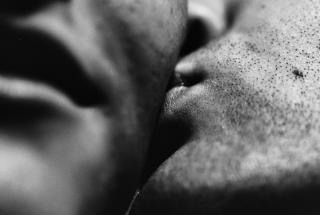A Liberal Theology of Sexuality

When we talk about a liberal theology and ethic of sexuality, we need to start in our vulnerable, needy bodies, in real life, in the struggle to navigate our embodied neediness with others in an embrace of the still-possible mutual wholeness and transformation.
Any theology of sex that doesn’t start with the body fails to address those implicit and injuring messages many of us and our culture carry. Early Christian thinkers—influenced by Plato, Aristotle and Hellenism, imagined human life dualistically—body and soul separate. The soul was eternal and of God, the body was sinful and to be overcome in service of saving the soul.
A liberal theological anthropology—that is an understanding of the human person – refuses to separate the parts in any way—but rather approaches humanity as one—one of body, mind, spirit, all one. All connected, all alive, indivisible, all gifts of God, or of the universe, all worthy of love and belonging—inherently so, as we say.
The body is not something to be overcome in this framework, but is rather to be honored, respected, loved. Its regular workings and needs are not shameful or dirty or requiring purification or containment. Bodies are funny, mysterious, beautiful, messy and changing—as humans are funny, mysterious, beautiful, messy and changing. That bodies become hungry for food or for touch is simply true—not good, not bad, just true. That bodies take pleasure in food or touch is also true, still not inherently good, or bad, just true.
Most of all bodies—as they are indivisibly life, humanity, personhood—are vulnerable, as life is vulnerable. We go to great lengths to control and avoid this reality, to assert and appear otherwise, but all of us, all of us, are so terribly vulnerable. We are susceptible to illness, injury, aging. Our hearts hurt literally or figuratively—often both, and often the distinction is imperceptible.
Bodies that hurt can also be healed, and because bodies and spirits and minds are one, the hurt may show itself in a particular place, yet the pain will be felt everywhere: “distinctly unlovely and undesirable.” So too the healing, everywhere: “exquisitely consoled.” In the midst of all the ways that life tears us apart, sex can pull our pieces back together, tenderly, clumsily, beautifully. And when it does—whether in the context of casual or committed relationships—sex can be holy and sacred.
Quoted phrases in the final paragraph are from Stephanie Paulsell's book Honoring the Body, adapted by Sarah Gibb Millspaugh.
| Author | Gretchen Haley |
|---|---|
| Date added | |
| Tagged as |